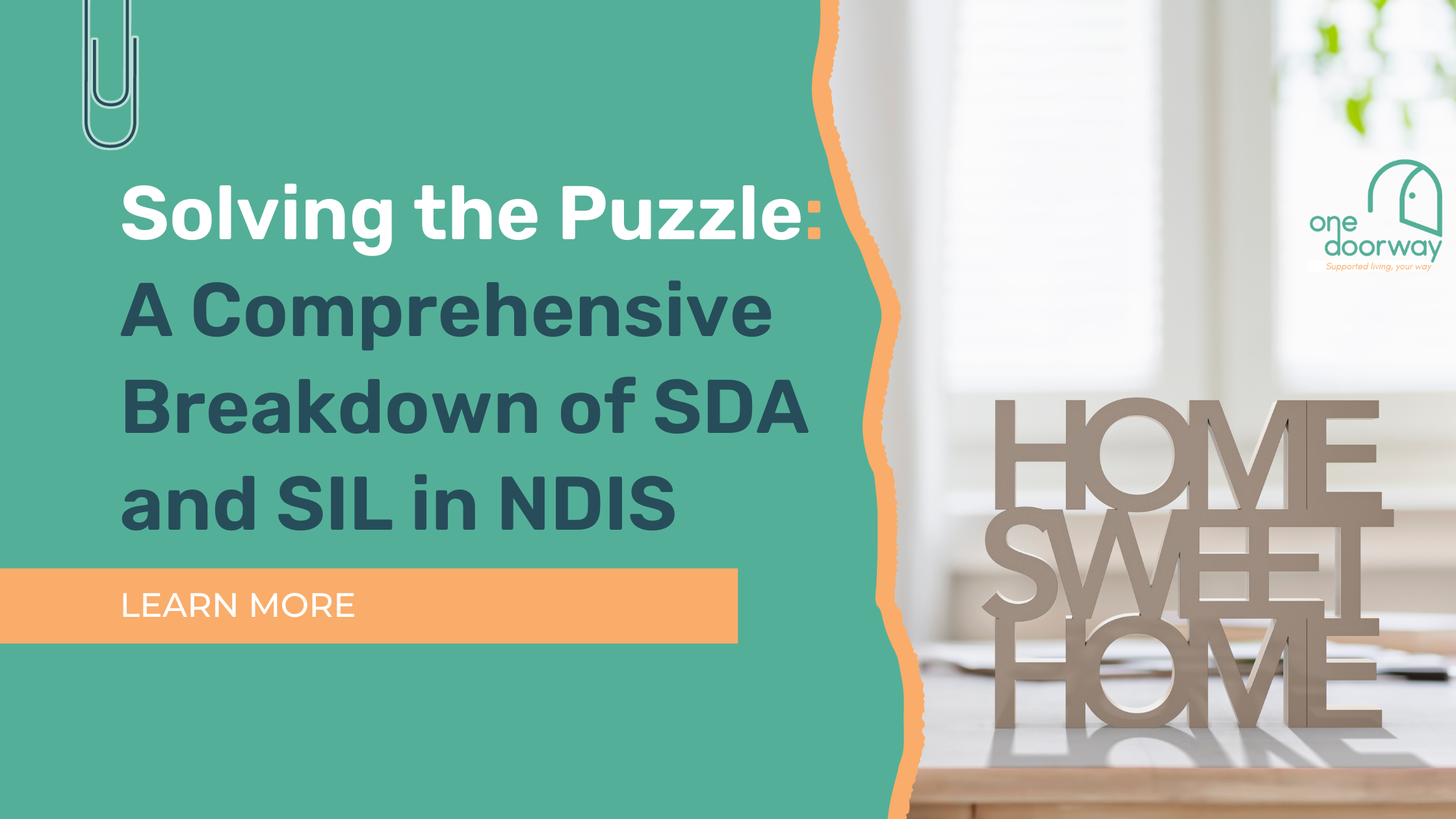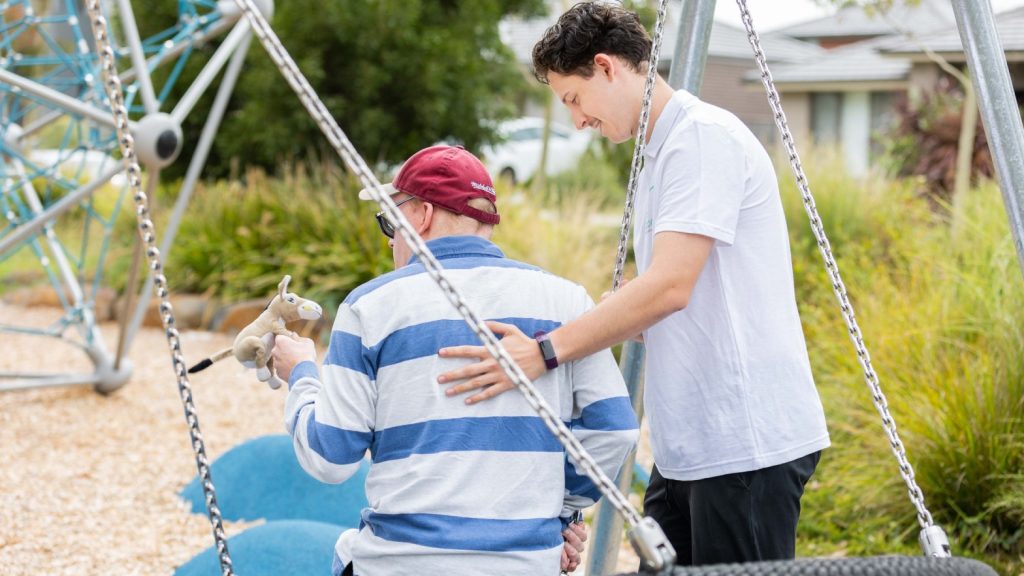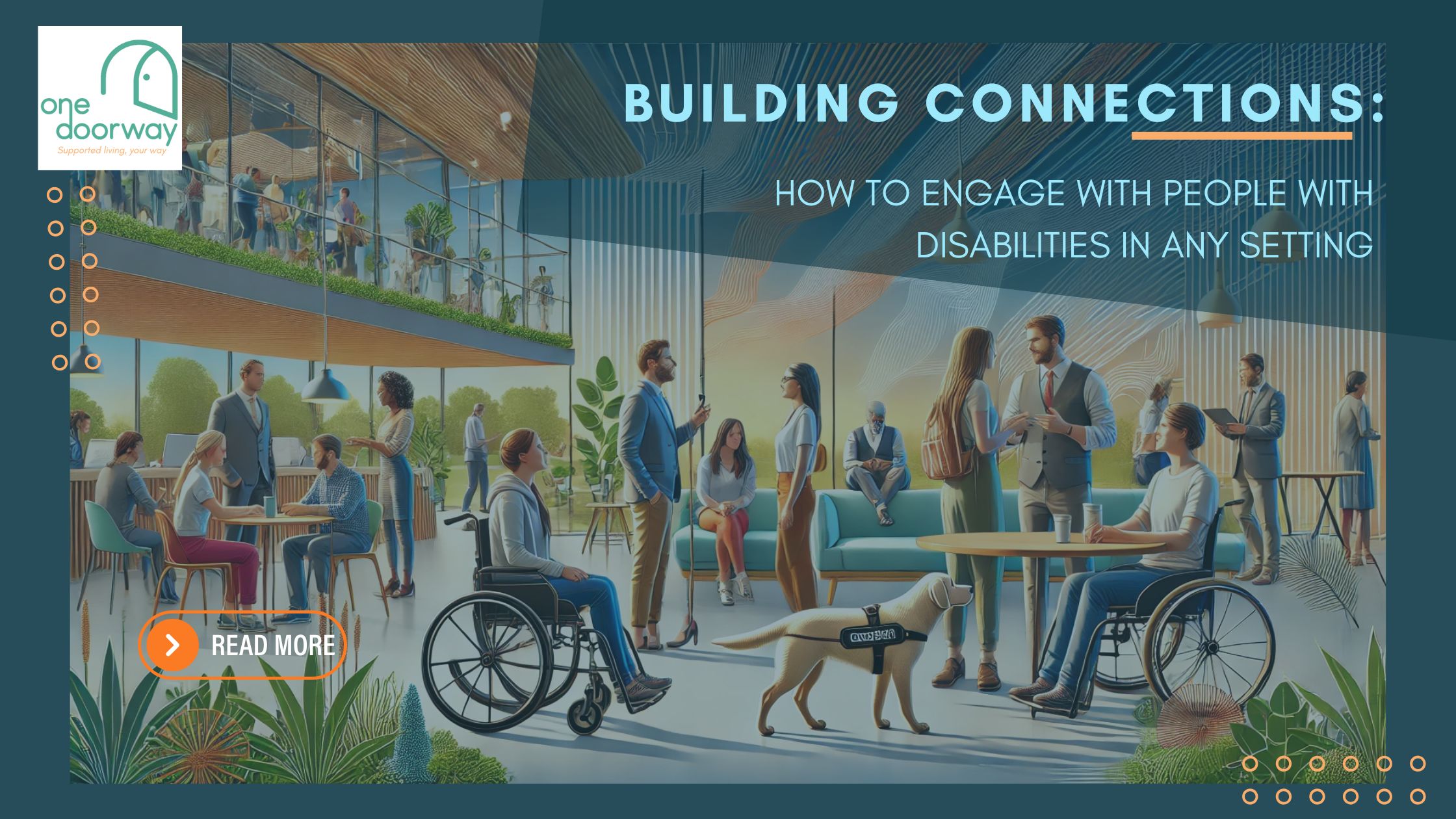Solving the Puzzle: A Comprehensive Breakdown of SDA and SIL in NDIS

Understanding SDA and SIL in NDIS can be a pivotal part of navigating the National Disability Insurance Scheme (NDIS). It’s a complex journey, especially when deciphering the types of support available. Two terms, Specialist Disability Accommodation (SDA) and Supported Independent Living (SIL), often arise and can be sources of confusion. Both funding options offer crucial support for those with disabilities. But distinguishing between them is essential to match the right support to individual needs.
In this blog post, we will provide a comprehensive breakdown of SDA and SIL in the context of NDIS. We will explain the definition and purpose of each funding option and outline the eligibility criteria. We will also compare and contrast the differences between SDA and SIL, including the advantages and disadvantages of each option. Whether you are an NDIS participant, a family member, or a carer, this will help you understand SDA and SIL. It will help you make informed decisions about which option is best suited to your needs.
SDA: Specialist Disability Accommodation
Specialist Disability Accommodation (SDA) is a funding option. It is available under the NDIS which provides housing for individuals with a disability. These individuals with disabilities who require specialist housing solutions to help them live independently. SDA funding provides assistance with the cost of building, buying, or modifying homes to suit the needs of people with disabilities. The aim of SDA is to improve the quality of life of individuals with disabilities. This is answered by providing a safe and suitable living environment.
To be eligible for SDA funding, an individual must meet specific criteria outlined by the NDIS. The criteria include having an extreme functional impairment or very high support needs and requiring specialist housing solutions that cannot be provided through other NDIS supports. Participants must also meet certain age, residency, and citizenship requirements to be eligible for SDA funding.
Four types of SDA Funding
There are four types of SDA funding available, including new build, improved liveability, fully-accessible, and legacy. Each type of funding has different eligibility criteria, and the amount of funding available varies depending on the individual’s needs.
SDA properties are designed to cater to the unique needs of people with disabilities. They include features such as:
- wider doorways
- accessible bathrooms
- modified kitchens
This will allow individuals to move around and perform daily tasks with ease. Properties are designed to meet specific design categories. It may range from basic to high support. Each category is designed to meet the needs of people with different levels of disability. Examples of SDA properties include purpose-built apartments, group homes, and shared living arrangements.
Overall, SDA provides an excellent housing solution for individuals with disabilities who require specialist accommodation. It allows participants to live independently while receiving the necessary support to meet their needs. It’s vital to know SDA’s eligibility and funding to see if it’s right for you.
SIL: Supported Independent Living

Supported Independent Living (SIL) is another funding option available under the NDIS. It provides support for individuals with disabilities to live independently in the community. The aim of SIL is to provide participants with the necessary support to develop and maintain their living skills, including:
- personal care
- domestic assistance
- asocial and community participation
To be eligible for SIL funding, an individual must have an NDIS plan. The individual also requires assistance to live independently due to their disability. Participants must also meet specific criteria, including age, residency, and citizenship requirements.
Two types of SIL Funding
There are two types of SIL funding available, including standard and complex. Standard SIL funding provides basic support services, such as personal care and domestic assistance. While complex SIL funding provides additional support for individuals with complex needs, including 24-hour support.
SIL support services are provided by registered NDIS service providers. These providers can include community housing providers, disability service providers, and home care providers. SIL providers are responsible for ensuring that participants receive the necessary support to maintain their independence and achieve their goals.
Examples of SIL support services include assistance with personal care. Examples of these are bathing and dressing. While assistance with household tasks, such as cooking and cleaning. Then assistance with social and community participation, such as attending events and joining community groups. To learn more about this, you can contact us or go through our website. We offer comprehensive SIL services for people with complex needs.
Overall, SIL funding provides an excellent option for individuals with disabilities who require support to live independently in the community. It allows participants to develop their skills and achieve their goals while receiving the necessary support to meet their needs. However, it is essential to understand the eligibility criteria and funding options available to determine if SIL is the right choice for you.
The Differences Between SDA and SIL
While both SDA and SIL provide support for individuals with disabilities, there are significant differences between the two funding options. Understanding these differences can help individuals choose the right option for their needs.
Eligibility Criteria:
The eligibility criteria for SDA and SIL differ significantly. SDA is only available for individuals with an extreme functional impairment or very high support needs who require specialist housing solutions, while SIL is available for individuals with an NDIS plan who require assistance to live independently due to their disability.
Funding:
The funding options available for SDA and SIL also differ. SDA provides funding for the construction, purchase, or modification of homes to suit the needs of people with disabilities, while SIL provides funding for support services to help individuals with disabilities live independently.
Support:
The support provided by SDA and SIL also differs significantly. SDA provides support by creating a safe and suitable living environment, while SIL provides support by assisting individuals with personal care, household tasks, and social and community participation.
Advantages and Disadvantages:
SDA and SIL both have advantages and disadvantages. SDA provides a specialist housing solution that is tailored to the needs of people with disabilities, but it can be expensive and may not be available in all areas. SIL provides support for individuals to live independently in the community, but it may not provide the level of support needed by some individuals.
Choosing the Right Option:
When choosing between SDA and SIL, it is essential to consider individual needs and goals. SDA may be the right option for individuals with an extreme functional impairment or very high support needs who require a specialist housing solution, while SIL may be the right option for individuals with an NDIS plan who require support to live independently. It is also important to consider the funding options available and the level of support provided to determine which option is best suited to individual needs.
In Summary
In conclusion, understanding the difference between SDA and SIL is crucial for individuals with disabilities who require support to live independently. SDA provides a specialist housing solution, while SIL provides support services to help individuals live independently in the community. Both funding options have advantages and disadvantages, and choosing the right option depends on individual needs and goals.
It is important to note that One Doorway offers comprehensive SIL services and is a certified NDIS provider. Our team can assist in determining eligibility for both SDA and SIL and provide support in navigating the NDIS system. We are committed to helping individuals with disabilities achieve their goals and improve their quality of life.
We urge individuals to seek further information and support from One Doorway to determine the right funding option for their needs. Contact us today at care@onedoorway.com.au to learn more about our services and how we can help you live your best life.


